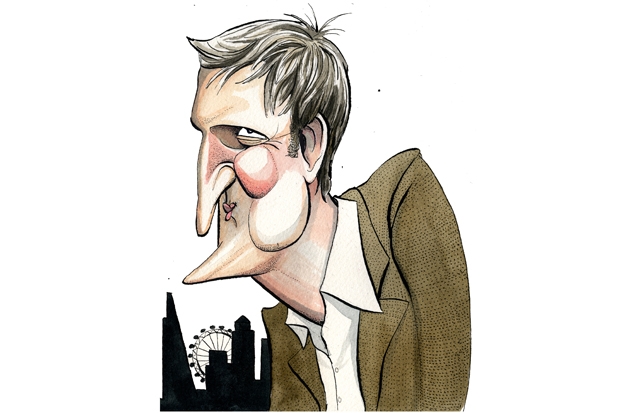I am not generally given to conspiracy theories, but I have to say there was a point last week where I started asking myself whether there are people in government saying to each other ‘these queues at petrol stations – they are exactly what we need if we are going to persuade people to buy electric cars and phase out petrol and diesel by 2030’.
It seems I wasn’t wrong. Except, that is, Zac Goldsmith, a foreign office minister, isn’t saying it quietly. He said in an interview with the Independent of the petrol crisis: “It’s a pretty good lesson on the need to unhook ourselves from dependence on fossil fuels. You’re not seeing the same problems with people who have electric vehicles.”
What will be Zac Goldsmith’s reaction when the lights go out and Tesla drivers are stranded?
When you are a member of a government which has just managed to create a crisis from nothing, and which continues to bumble around as people struggle to get to work, to school, to hospital appointments, it is not a very clever thing to say. It is an outrage. The economy, having just awakened from Covid, is being undermined again by all manner of shortages of goods and labour. And yet here is an extremely wealthy government minister trying to tell us it is all teaches us that we should go out and buy electric cars which are way beyond the means of most motorists and tradesmen.
No, Zac Goldsmith, the petrol crisis is not a lesson in the delights of electric cars. It is an object lesson in how not to govern. The shortage of lorry drivers has been building for years, and was hugely exacerbated by the loss of testing slots during the lockdowns. At the same time – and utterly predictably – we lost foreign lorry drivers to a combination of a failure to allow a sufficiently open labour market following Brexit, and of needlessly harsh barriers to migration erected to try to control Covid. Yet the problem failed to register with ministers, who only started flapping around when people started queueing at the pumps – at which point they came up with absurd schemes like writing to German financiers working in London, inviting them to take up careers as HGV drivers instead.
It is remarkable that this crisis – which had no immediate trigger other than the leaked details of a meeting between ministers and the road haulage lobby – has now lasted longer than the petrol crisis of 2000, which was largely over by the first weekend following a decisive intervention from the then Prime Minister, Tony Blair.
Contained within Zac Goldsmith’s remark is an assumption that the government will prove to be better at maintaining an adequate supply of electricity than it has been at keeping road fuel flowing. Yet those who can afford to go out and buy a £40,000 Tesla can have no such confidence that they will always be able to charge it up when they need to. Immediately prior to the petrol crisis, you might remember, was a gas crisis. Indeed, this is still in progress, with energy suppliers still going bust thanks to the government’s energy price cap. For years, the government has been proceeding headlong with a renewable energy strategy while doing too little to counter the obvious problem that wind and solar are intermittent sources of power. We have little in the way of storage capacity for wind and solar energy, while we have also closed down our coal-fired power stations and run down our gas storage facilities, compromising back-up sources of energy.
What will be Zac Goldsmith’s reaction when the lights go out and Tesla drivers are stranded? ‘It’s a pretty good lesson to stay at home and survive by growing your own vegetables?’ I have thought for some time that net zero will be the death of this government. I am now even more convinced.







Comments